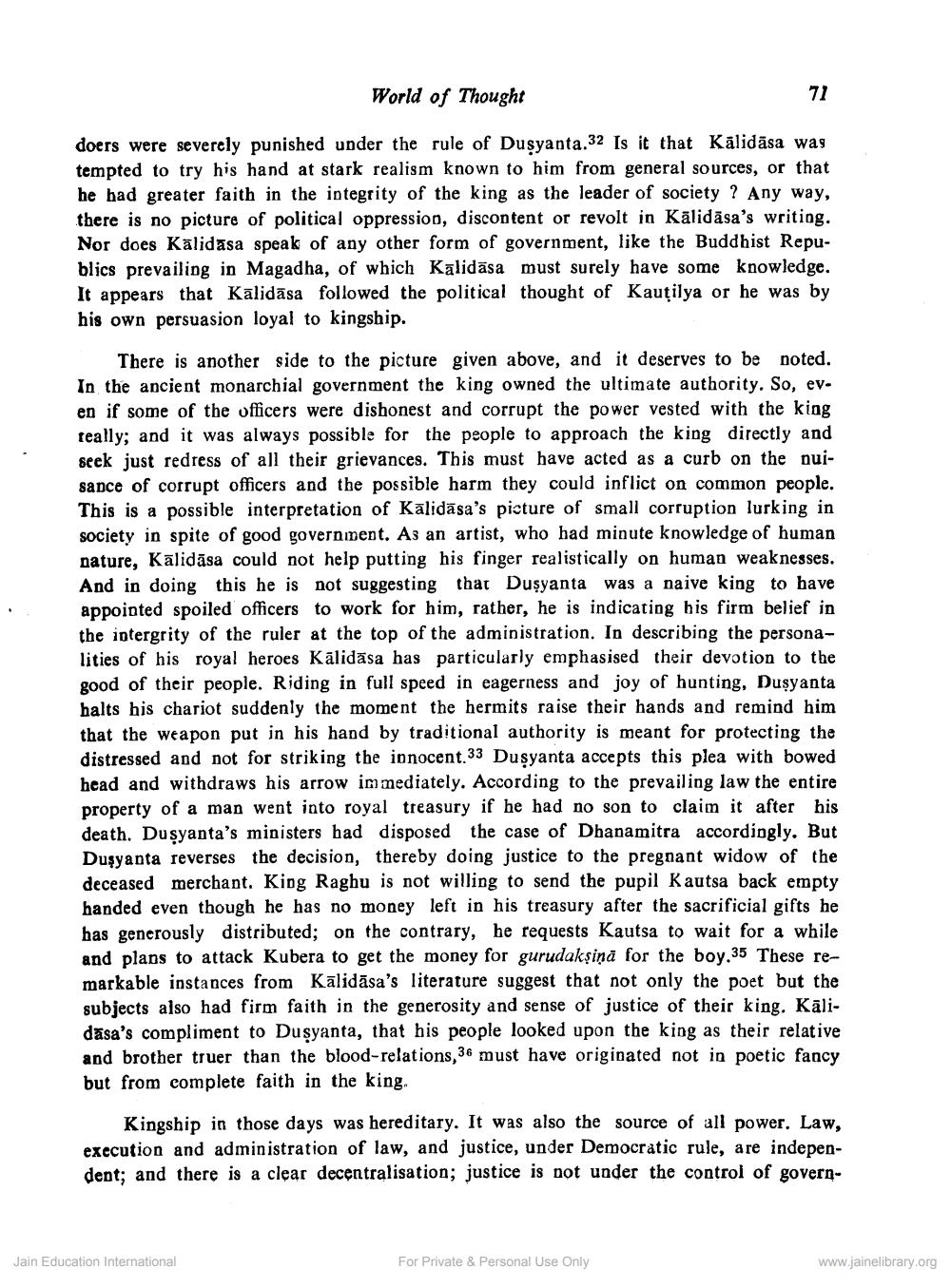________________
World of Thought
11
doers were severely punished under the rule of Duşyanta.32 Is it that Kālidāsa was tempted to try his hand at stark realism known to him from general sources, or that he had greater faith in the integrity of the king as the leader of society ? Any way, there is no picture of political oppression, discontent or revolt in Kālidāsa's writing. Nor does Kalidasa speak of any other form of government, like the Buddhist Republics prevailing in Magadha, of which Kālidāsa must surely have some knowledge. It appears that Kalidāsa followed the political thought of Kautilya or he was by his own persuasion loyal to kingship.
There is another side to the picture given above, and it deserves to be noted. In the ancient monarchial government the king owned the ultimate authority. So, even if some of the officers were dishonest and corrupt the power vested with the king really; and it was always possible for the people to approach the king directly and seek just redress of all their grievances. This must have acted as a curb on the nuisance of corrupt officers and the possible harm they could inflict on common people. This is a possible interpretation of Kālidāsa's picture of small corruption lurking in society in spite of good government. As an artist, who had minute knowledge of human nature, Kālidāsa could not help putting his finger realistically on human weaknesses. And in doing this he is not suggesting that Duşyanta was a naive king to have appointed spoiled officers to work for him, rather, he is indicating his firm belief in the intergrity of the ruler at the top of the administration. In describing the personalities of his royal heroes Kālidāsa has particularly emphasised their devotion to the good of their people. Riding in full speed in eagerness and joy of hunting, Duşyanta halts his chariot suddenly the moment the hermits raise their hands and remind him that the weapon put in his hand by traditional authority is meant for protecting the distressed and not for striking the innocent.33 Duşyanta accepts this plea with bowed head and withdraws his arrow immediately. According to the prevailing law the entire property of a man went into royal treasury if he had no son to claim it after his death. Duşyanta's ministers had disposed the case of Dhanamitra accordingly. But Duşyanta reverses the decision, thereby doing justice to the pregnant widow of the deceased merchant. King Raghu is not willing to send the pupil Kautsa back empty handed even though he has no money left in his treasury after the sacrificial gifts he has generously distributed; on the contrary, he requests Kautsa to wait for a while and plans to attack Kubera to get the money for gurudaksiņā for the boy.35 These remarkable instances from Kālidāsa's literature suggest that not only the poet but the subjects also had firm faith in the generosity and sense of justice of their king. Kālidasa's compliment to Duşyanta, that his people looked upon the king as their relative and brother truer than the blood-relations, 36 must have originated not in poetic fancy but from complete faith in the king.
Kingship in those days was hereditary. It was also the source of all power. Law, execution and administration of law, and justice, under Democratic rule, are independent; and there is a clear decentralisation; justice is not under the control of govern
Jain Education International
For Private & Personal Use Only
www.jainelibrary.org




